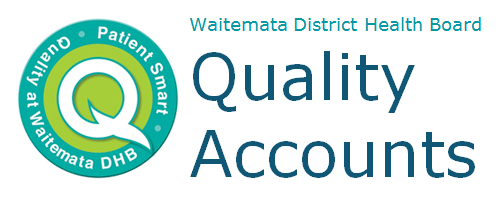
The Pacific Best Practice programme is a workforce initiative with a view to bringing about change in Pacific health through Pacific-appropriate engagement. The Pacific Best Practice programme training utilises the Pacific methodologies (Talanoa and Teu le va) to deliver culturally diverse perspectives.
- Talanoa has been defined as talking about nothing in particular. Talanoa is a common word for sharing conversation and yet within groups it can be a respectful way by which voices are deeply heard. It is within the cultural milieu of Talanoa that knowledge and emotions are shared. Talanoa enables safe interactive discussion.
- Teu le va is a tool primarily for educational researchers, to help them plan and implement research that contributes to the development of effective policy and practice in respect of Pasifika students in our schools. Teu le va advocates for a respectful partnership and relationship.
What are we trying to achieve?
In 2015 Waitemata District Health Board completed a review of Pacific health outcomes identifying the disproportionately high 'did not attend' rates (DNA) and access issues resulting in poor health outcomes.
As a result providing "Best Care for Everyone” was a key recommendation to the health worker's ability to engage with Pacific patients, their families and the Pacific community.
Pacific best practice aims to achieve a relationship between healthcare providers and their patients, that is built upon strong principles of respect and understanding.
What have we done?
Pacific Health Waitemata and Auckland DHBs collaborated with Auckland Regional Dental Service (ARDS) to undertake the Pacific Best Practice programme training with ARDS staff and then evaluate the effectiveness of that training. A three person team of different Pacific ethnicities facilitate the Talanoa.
A total of 320 Auckland Regional Dental Service staff participated in the training, consisting of an online module, and a half-day face-to-face workshop.
The evaluation forms were then analysed identifying themes and patterns to determine the effectiveness of Pacific Best Practice training and develops recommendations for future development.
Did we make a difference?
Feedback
Trainee evaluations provided positive feedback in the relation to the Pacific Best Practice training. The feedback can be broken down into 3 themes:
Theme 1
- Management support and commitment vital
- Need to link in with other DHB services
- Need for personal commitment
Theme 2
- Awareness of Pacific Cultures and responses to health care
Theme 3
- Pacific Best Practice provided positive learning environment
The Pacific Talanoa and Teu le va approaches to delivering the training enhanced the learning experience for the trainees.
ARDS staff demonstrated a greater awareness of Pacific, and greater effort to make engagement, in order to encourage attendances and build relationships in the clinics.
Where to from here?
As a result of such positive feedback in relation to the learning experience using the Pacific Talanoa and Teu le va approaches Pacific Health are keen to develop a Pacific educational and engagement training model and a platform for a community partnership branch to their service.
Pacific Health will also undertake further research into:
- workforce development,
- Pacific engagement and patient outcomes
- adding to the pool of knowledge in the field of cultural competency
